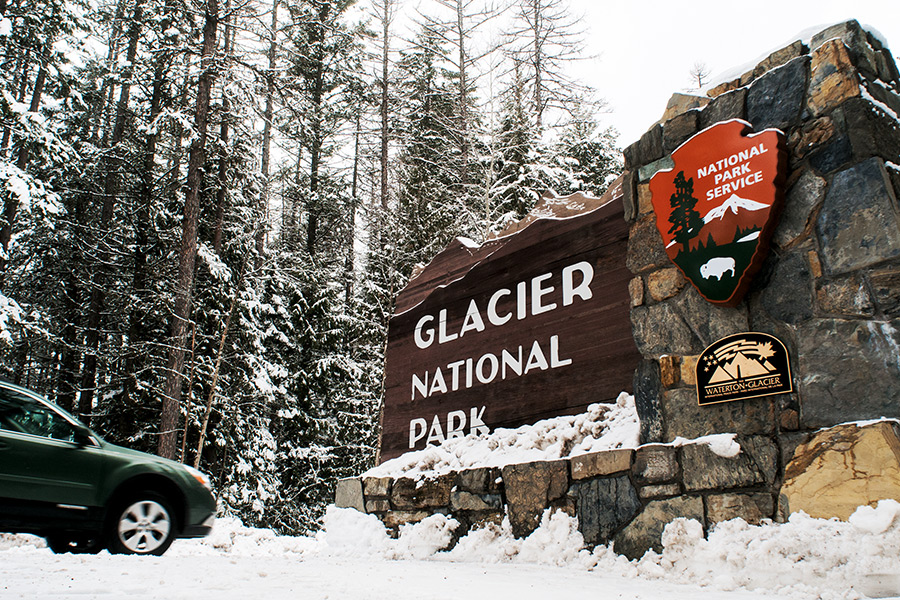Proposed fee increases at Glacier National Park drew mixed reactions.
Two prominent conservation groups – the National Parks Conservation Association and the Glacier National Park Conservancy – say that fee increases are necessary to maintain visitor services within Northwest Montana’s largest attraction. However, both groups said that the proposed fee increases should not replace annual federal funding and that Congress needs to do more to support the National Park Service.
The Kalispell Chamber of Commerce, which conducted a survey of its 650 members, disagreed with the proposed increase for annual passes but said it supports the overall effort to raise revenues. Chamber President Joe Unterreiner urged the NPS to have a similar percentage increase for both the annual pass and 7-day pass, instead of the current proposal, which seeks a 71 percent increase in the annual fee.
“This fee structure puts an unfair and disproportionate burden on Flathead Valley and Montana residents,” Unterreiner said in a public comment letter submitted Dec. 18 to the NPS.
Unterreiner said the Chamber does support the park’s overall attempt at increasing revenues through fee hikes.
“We think that’s probably a necessary step and we support them hitting that revenue target,” he said.
The National Park Service accepted comments on proposals to increase fees across the park system until Dec. 19. If the agency decides to increase fees, they will take effect in early 2015. The last time Glacier increased fees was 2006.
“There are so many programs that have been cut back and so the fee increase will help fund interpretive programs and trail maintenance,” said NPCA’s Glacier Field Representative Sarah Lundstrum. “But fee increases can’t replace the funding Congress is supposed to provide.”
Last month, NPS proposed raising fees across the park system. If implemented, a seven-day summer season vehicle pass would increase from $25 to $30, while the winter pass would increase from $15 to $20. The hiker/biker summer pass would increase from $12 to $15, but the winter pass would remain at $10. The seven-day motorcycle pass would increase from $12 per person to $25 per motorcycle in summer and from $10 per person to $15 per motorcycle in winter.
Summer season fees are charged from May 1 until Oct. 31 and winter season rates apply from Nov. 1 to April 30.
The largest proposed increase would apply to the park’s annual pass, which is popular among locals. The pass would cost $60 instead of the $35 it costs now.
The proposal also includes the implementation of a motorized boat launch fee and would support managing the boat launch facilities within the park. Officials say the fee would be $10 for a seven-day pass and $40 for an annual pass.
Lastly, the National Park Service is also proposing an increase to various camping fees, specifically at the Many Glacier Campground where one night’s stay would increase from $20 to $23. If approved, the fee would be implemented in the summer of 2016. Fees would also increase at group campsites in the park, including St. Mary, Apgar, Many Glacier and Two Medicine. The proposed fee is $65 per group reservation site and $60 for first-come, first-serve group sites.
If approved, the fees could generate an additional $500,000 every year for Glacier Park’s coffers. Eighty percent of the fees a national park collects go directly to visitor services and maintenance within the park. The remaining 20 percent is distributed throughout the rest of the Park Service.
“A strategy that increases the entrance fee for the 7-day pass slightly higher than proposed, and which is preferred by 86 percent visitors, will give the Park the financial outcomes it seeks without a drastic increase to the price of an annual pass,” Unterreiner said.
According to park spokesperson Denise Germann, the park had received close to 300 comments on the proposal just before the Dec. 19 deadline.
In its comments to Glacier National Park, the NPCA’s Glacier Field Office said it supported modest fee increases to improve visitor experience and restore some interpretive activities. Lundstrum said in years past, the park offered more ranger-led hikes and demonstrations, but as budgets have shrunk, so has the interpretive schedule.
NPCA’s Crown of the Continent Program Manager Michael Jamison said it is important to keep the fee increases in perspective. He noted that it costs a family of five less money to visit a national park for seven days than it does for those same five people to go to the movie theater for two hours.
“National Parks have been and continue to be an incredibly affordable family destination,” Jamison said.
Mark Preiss, President and CEO of the Glacier National Park Conservancy, agreed that the fee increases would help the park maintain services and that it is necessary in the absence of consistent federal funding. He said the conservancy is already talking with park officials about creating an assistance program for people or families who can’t afford the additional costs of the increased fees.
“We deeply appreciate the park’s need to raise funds to sustain ongoing basic operations,” Preiss said. “We share Glacier’s commitment to reaching park users who may find a fee increase challenging, and are developing a program that supports this objective, ensuring that Glacier remains accessible to all, regardless of financial ability.”
Clarification: The Kalispell Chamber of Commerce disagrees with the proposed rate increase for annual passes but supports the overall effort to improve revenues through increases.
